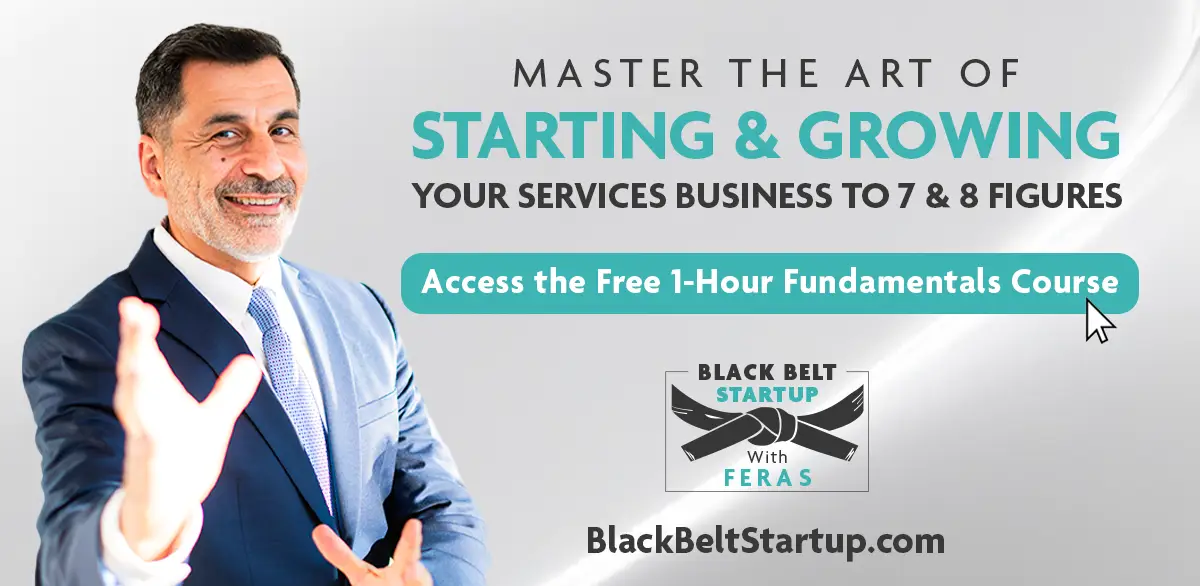Freedom Lessons From the ’80s

Good Morning!
Hope you're enjoying the long weekend here in the U.S.! No matter how focused we are on entrepreneurship (and we should be), it’s just as important to unplug once in a while, have some fun, spend quality time with loved ones, and deepen the relationships that really matter. The kids (well, adults now!) want to head to the lake this weekend, so that’s where we’ll be.
On the Mat
- The Most Powerful Financial Advice I Ever Got Came from the 1980s
- The Hidden Trap That Blocks Growth
- Boring Is Bountiful: AI and Risk Management
- Income ≠ Wealth
Let's Train
The Most Powerful Financial Advice I Ever Got Came from the 1980s
“Only use cash. And if you must use a credit card, pay it off in full every month.”
That’s what a mentor told me decades ago. I remember blinking at him like he’d just pulled out a rotary phone.
Cash? Really? No points? No float? No 30-day runway?
But I listened. And to this day, I’ve never carried a credit card balance, not in my personal life, and never in business.
That one habit, simple as it was, changed everything.
Most people chase financial freedom by trying to earn more, but real freedom doesn’t come from revenue. It comes from restraint.
It’s easy to assume that if you hit $5K or $10K/month, the anxiety will fade. The chaos will settle. You’ll finally feel in control.
But I’ve seen founders at $20K/month who still check their accounts every morning with a tight chest.
Why?
Because they scaled revenue before they built financial discipline.
- They signed up for five SaaS tools they barely use
- Outsourced operations too early
- Bought the fancy laptop, the “CEO” headshots, and the coworking space
- Told themselves it was all an “investment”
But when the client's work slowed? Or a deal fell through? The whole thing started cracking.
Let me make this practical. If you're just starting or stuck at a plateau, these habits can create more peace than any marketing tactic:
1. Pay off your credit card every month. No exceptions.
If you can’t afford it today, don’t use it. I’ve coached founders who ran full-service businesses off $0 tools, just Google Docs, Stripe, and email. Not because they were broke, but because they were smart.
Credit card debt isn’t just expensive, it clouds your decisions. It traps you in “what do I owe?” thinking instead of “what do I keep?” clarity.
2. Slash anything you haven’t used in 60 days.
Log into your bank account. Check every subscription: Zoom Pro, Notion AI, ClickFunnels, and Canva Premium. Cancel ruthlessly.
If you’re not using it to directly serve clients, generate leads, or close sales, it’s not worth it right now.
Later, when your foundation is solid, you can add tools back intentionally. But right now? Simplify.
3. Delay the upgrade.
Your laptop is fine. Your logo is fine. That office space that costs $1,500/month? Not helping if you’re spending the whole day refreshing your inbox.
When I started, I used a second-hand desk, free Gmail, and no/low-cost software. I didn’t look like a business owner. But I was one. Because I focused on delivery, not decoration.
4. Open a separate business account today.
Even if you’ve made $87 total, go open a business checking account. Run all client payments and expenses through it.
A simple habit like separating money gives you clarity, clean records, and confidence when you start making more. (And will save you a whole lot of time and money when preparing for your taxes).
I’ve put together a free Entrepreneurship Essentials course that walks through how to set up your business for clarity, freedom, and growth even if you’re starting from scratch.
Because no one talks about how lonely it feels when you’re grinding with no margin, but you don’t have to do this alone. And you don’t have to guess your way forward.
We’re building with you.
Ask Feras Recaps
The Hidden Trap That Blocks Growth
Recently, someone on Reddit asked me: “What’s something most people don’t realize will create problems when scaling?”
It’s a powerful question, because I’ve lived the answer.
And I’ve seen it quietly hold back dozens of founders who had the right offer, the right skills, and the right ambition… but never quite broke through.
So this week’s Ask Feras Recap is my response, a lesson I learned the hard way, and one I wish someone had drilled into me earlier.
Here’s what I told them.
🔥 Challenge:
In the early days, we do it all, every proposal, every calendar booking, every follow-up email. It makes sense when you’re scrappy and strapped for cash.
But here’s the trap: You get used to doing everything… and you don’t stop.
💡 What I Learned the Hard Way:
I used to think nobody could handle the work as well as I could. I was protecting quality, right?
But in reality, I was protecting control and sabotaging growth.
The more I clung to every admin task, the less time I had for what actually drives a business forward: sales, relationships, strategy.
🛠️ What I Told Them:
Here’s the mindset shift I shared:
- Master delegation early
- If you’re spending hours updating spreadsheets or booking meetings, start small. Hire a VA for 5–10 hours/week. Free up thinking time.
- Time is your real currency
- Growth requires white space, mental bandwidth to think ahead, not just react. Every low-leverage task you hold onto chips away at that.
- It doesn’t have to be full-time
- You can start with part-time help, project-based contractors, or hourly support. The key is to stop waiting until you’re overwhelmed.
📈 Progress:
Once I started letting go of back-office tasks, everything accelerated.
More space. Better execution. Higher-quality client work.
So if you’re feeling stuck, ask yourself: What are you still doing out of habit… that someone else could do better or at least, well enough?
Letting go is hard. But staying stuck is harder.
* Some details have been changed to protect privacy.
You Might Like This
Everyone is talking about the promise of AI, but the dialogue around the vulnerabilities that AI opens up for businesses seems to get much less attention.
In the current edition of Harvard Business Review, however, Organizations Aren't Ready for the Risks of Agentic AI begins to explore some of these vulnerabilities. Along with the power of AI comes complexity and confusion that most businesses don't yet know how to manage.
This article thus suggests a type of opportunity that has always helped consulting and service companies stand out and succeed: combining two areas of expertise into a more specialized offering. If you have experience in risk management and you're able to build out a specific AI angle to that experience, you may have the basis for a viable consulting business.
The article also illustrates one of our Black Belt Startup principles: boring is bountiful. Fewer people are talking about the risks of AI because risk is, for many, just not as interesting as the capabilities of AI for automation and creativity.
As you read the article, consider how you can deepen your understanding of AI implementation within your field of expertise in a way that your competitors may not yet be, and also consider if there are any "boring" but important services that other firms are neglecting and that you can pursue and dominate.
Sharpen Your Blade
You can generate 6 or 7 figures in revenue and still feel broke, still anxious, still stuck in a cycle of high income, low control.
And if you're just getting started, chasing financial freedom? The chaos often starts early.
Because here’s the truth: Financial chaos doesn’t disappear when your revenue grows.
It just hides behind a prettier bank balance.
The real threat isn’t lack of money, it’s leaks in your systems.
Gaps in your judgment and habits you haven’t outgrown.
In this livestream, I broke down the invisible patterns that quietly sabotage financial independence- whether you’re just getting traction or already earning six or seven figures.
And more importantly, how to escape them.
If you’re working harder than ever, or gearing up for your first breakthrough, but somehow still can’t breathe?
This is for you.
Click here to watch this livestream.
Subscribe to the Black Belt Startup Newsletter
Weekly, 5-minute insights to help you escape the 9–5, land your first clients, and grow a thriving business.


